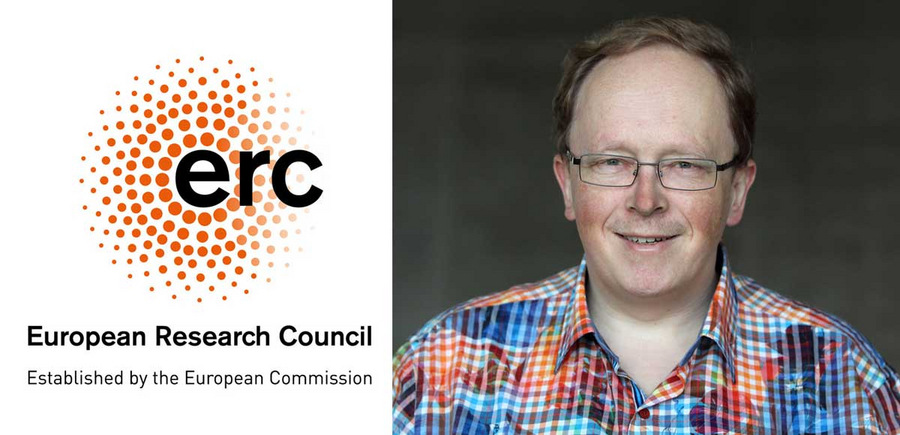
Copyright: MPI-CBG
The European Research Council (ERC) announced the awarding of its prestigious Advanced Grants to 185 senior researchers. The Advanced ERC grant is designed to support excellent scientists in any field at the career stage at which they are already established research leaders with a recognised track record of research achievements in the last ten years. Among them is Pavel Tomancak, Senior Research Group Leader at the MPI-CBG, with his project proposal “Impact of yolk-cellular blastoderm-egg shell interactions on the evolution of animal gastrulation” with the acronym GHOSTINTHESHELL. He will receive 2,3 million euros for the next five years. Congratulations!
The Saxon Minister of Science Sebastian Gemkow congratulates Pavel Tomancak: "ERC grants are a prestigious honor for researchers in Europe. The competition is huge. My congratulations on your success, which is also proof of your outstanding scientific achievements up to now - and good luck for the future".
With this project, Pavel will investigate, how interactions between cells of the early embryo, the yolk component of the egg and the attachment of the cells to the surrounding egg shell affects gastrulation morphogenesis. Gastrulation is a crucial process during early development of all animals that brings about the first glimpse of the shape and form that the animal will eventually adopt. It is subject of intense research and over the past decades it became clear that there is a tremendous diversity in how different species achieve gastrulation. Despite this developmental biodiversity, relatively little is known about how the gastrulation process evolves. Pavel and his group will therefore focus on the comparison of two insect embryos, Drosophila and the red flour beetle Tribolium, that exhibit strikingly different tissue flows and foldings during gastrulation. This research project will bridge two relatively isolated disciplines – evolution of development and mechanistic tissue morphogenesis and will provide new insights into how living things achieve the Darwin’s “endless forms, most beautiful”.
The President of the European Research Council (ERC), Professor Mauro Ferrari, commented: “I am glad to announce a new round of ERC grants that will back cutting-edge, exploratory research, set to help Europe and the world to be better equipped for what the future may hold. That’s the role of blue-sky research. These senior research stars will cut new ground in a broad range of fields, including the area of health. I wish them all the best in this endeavour and, at this time of crisis, let me pay tribute to the heroic and invaluable work of the scientific community as a whole.”
This year the ERC received 1,881 applications, compared to 2,052 in 2018 competition. The highest number of applications was submitted in the domain of Physical Sciences and Engineering (839), followed by Life Sciences (542), and Social Science and Humanities (500). Almost 21% of proposals were submitted by women. The new research projects, apart from strengthening Europe’s knowledge base, will also lead to creation of some 1,800 new jobs for post-doctoral fellows, PhD students and other research staff. Out of the 185 successful grants, six went to Max Planck researchers. The funding, worth in total €450 million, enables senior researchers based in Europe to pursue their most innovative ideas and carry out frontier research with potentially ground-breaking impact on science and society beyond.
Congratulations to all awardees!
ERC Press Release
Press Release of the Saxon State Ministry for Science, Culture and Tourism
Press Release of the Max Planck Society